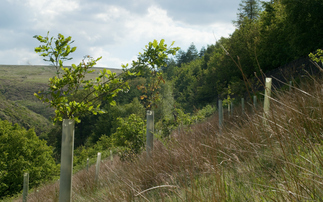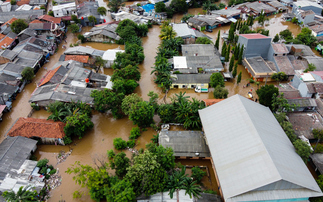Negotiators give green light for first version of the text as latest round of talks wrap up in Bonn
The first draft of the Paris negotiating text is set to be unveiled in the coming weeks, countries agreed today, stoking fresh hopes that the world is on track to sign a global deal to tackle climate change in the French capital at the end of this year.
On the last day of week-long negotiations in Bonn, delegates from 195 United Nations countries gave a clear mandate to the co-chairs of the talks to further whittle down the unwieldy 83-page document into a digestible format by the first week of October.
Co-chair Dan Reifsnyder told reporters the new text would be "coherent, concise, and comprehensive", representing a step change from the current "co-chairs' tool", which encompasses a wide range of views on how the world could limit global temperature rises to 2C.
Unlike the existing tool, the new draft will aim to present clear options and ways forward on all elements of the agreement and the decisions that are expected to be included in the Paris deal, which is due to come into force in 2020.
Reifsnyder said he was particularly optimistic that progress could be made on a short and relatively simple "general/objectives" section, but other "massive" areas such as adaptation and finance would prove more complicated.
"We have only 1,800 minutes to agree on a draft package for Paris," added co-chair Ahmed Djoghlaf, confirming that the base text would be produced ahead of this year's penultimate round of UN climate talks.
Progress this week has once again been painstakingly slow, with almost every party calling on the co-chairs to put the rocket boosters under the negotiations at a stocktaking session on Wednesday.
Djoghlaf said the new text would be a response to those demands. "At this session, countries have crystallised their positions and have requested the co-chairs to produce a concise basis for negotiations with clear options for the next negotiating session in October," he said in a statement.
"This means that we will arrive in Paris on time without too much turbulence - not before, not later."
The current co-chairs' tool contains three sections, grouping topics that will form part of the core, legally binding deal; a second part known as "COP decisions", and a third part that includes undecided areas.
Over the coming weeks, the co-chairs will need to try to eliminate that third section so that every issue has a home.
Elina Bardram, lead negotiator for the European Union, said the new text should provide concrete evidence of progress.
"We can no longer work from a repository of different ideas that lack a coherent narrative," she told reporters.
"We need to work towards a functional purposeful description of a narrative."
This week's talks also saw some progress on one of the most controversial issues of the climate talks - loss and damage, which explores how to pay vulnerable countries for the devastating impacts of warming temperatures, such as storms, rising sea levels and crop-ruining droughts.
The US put forward a proposal, backed by the European Union, showing how loss and damage could be included as a COP decision.
NGOs said this showed developed countries were starting to give some ground to small island states and least developed countries that have long campaigned for loss and damage to be included in the final text.
"It's been good to see the increasing understanding among nations regarding the importance of adaptation and loss and damage," said Christian Aid senior climate adviser Mohamed Adow.
However, he raised the alarm over the obviously slow pace of the talks. "But progress in Bonn has been painstakingly slow and to get a deal worth the effort then they must speed up the process between now and the next session in October," he said.
Jennifer Morgan, global director for the climate programme at the World Resources Institute, said the pressure was on UN countries to speed up progress.
"In Bonn, countries made important progress in crafting the core architecture of the global agreement," she said in a statement. "Negotiators had meaningful discussions on key elements, such as whether to regularly ramp up countries' commitments and set long-term goals to phase out emissions and enhance climate resilience.
"Now countries must move the ball forward during the numerous gatherings of ministers and heads of state before the next negotiating session in October. We need a fast pace from here on out to set the stage for a strong agreement in Paris."
But Christiana Figueres, the head of the UN's climate change secretariat, said the pace of the talks at the moment may be "irrelevant". She warned it would be a mistake to rush into Paris without having the solid foundations of an agreement.
"This does take the time that it takes," she told reporters. "And as far as I'm concerned I continue to see and hear very, very concrete evidence that every single country is fully committed to an ambitious agreement in COP21.
"The proof is in the pudding and the pudding is going to come out of the oven in Paris."







